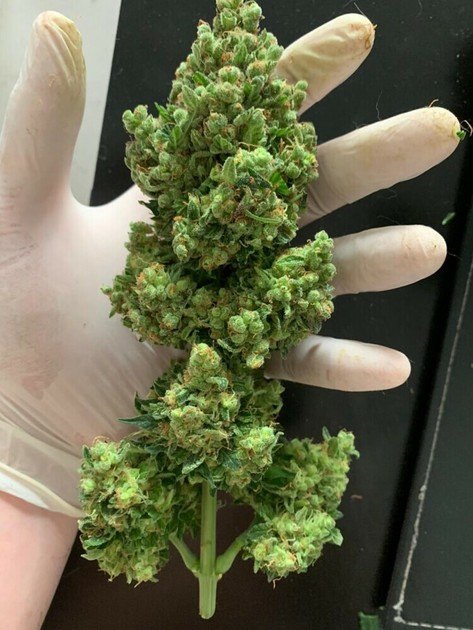Curious about the differences between THCA and THC? You’re not alone. These two closely related compounds found in cannabis have distinctly different effects on the human body. THCA, or tetrahydrocannabinolic acid, is the raw, non-psychoactive form present in fresh cannabis plants. It only converts to THC, the well-known psychoactive component, when exposed to heat—a process known as decarboxylation. In this post, we’ll delve into the unique properties of each, how they interact with the human body, and why understanding these differences is crucial for anyone interested in cannabis consumption. So, whether you’re a medical cannabis user or just curious, stick around to get the facts straight.
Understanding THCA Vs THC Explained
THCA and THC are two essential compounds found in cannabis, each with distinct properties and effects on the body. Let’s dive into what makes these compounds unique and how they impact your cannabis experience.

What is THCA?
THCA, or tetrahydrocannabinolic acid, is the precursor to THC found in raw cannabis plants. Unlike THC, THCA is non-psychoactive, meaning it doesn’t induce the mind-altering effects traditionally associated with cannabis consumption. Instead, THCA must undergo a process known as decarboxylation to convert into THC, unlocking its intoxicating properties.
When you consume raw cannabis or its derivatives, you’re interacting with THCA, a compound that interacts with the endocannabinoid system in the body without causing a high. The potential benefits of THCA, from anti-inflammatory properties to neuroprotective effects, continue to intrigue researchers and consumers alike.
What is THC?
THC, or tetrahydrocannabinol, is the primary psychoactive compound in cannabis known for its intoxicating effects. When THC binds to cannabinoid receptors in the brain and nervous system, it alters perception, mood, and sensations, leading to the characteristic “high” associated with marijuana use. Unlike THCA, THC directly interacts with the endocannabinoid system to produce its psychoactive effects.
As you explore cannabis products for recreational or medicinal purposes, understanding the differences between THCA and THC can guide your consumption choices and help tailor your cannabis experience to your preferences and needs.
For more detailed information on the distinctions between THCA and THC, you can refer to THCA vs THC: Understanding the Key Differences and THC vs. THCA: What are the Differences and Benefits.
Interaction with the Human Body
The interaction of THCA and THC with the human body is a fascinating topic that sheds light on the unique effects of these compounds on our physiological systems. Understanding how they engage with the endocannabinoid system provides insights into their distinct impact on the body.
THCA’s Interaction
THCA interacts with the endocannabinoid system without inducing psychoactive effects. When consumed in raw form, THCA engages with the endocannabinoid receptors in the body, acting as a potential modulator for various bodily functions. While it does not alter consciousness, research suggests that THCA may offer anti-inflammatory and neuroprotective benefits, contributing to overall well-being.
Explore how THCA subtly influences the endocannabinoid system without disrupting cognitive functions, paving the way for potential therapeutic applications in the future.
THC’s Interaction
In contrast, THC binds to cannabinoid receptors in the brain and nervous system, triggering psychoactive effects that alter perception and mood. By attaching to these receptors, THC influences processes like memory, pleasure, and sensory perception, leading to the renowned “high” associated with cannabis consumption.
Discover how THC’s interaction with the endocannabinoid system results in perceptual changes and heightened sensory experiences, highlighting the diverse effects of this potent compound on the human body.
Chemical Structure and Properties
When it comes to the chemical makeup of THCA and THC, these compounds exhibit distinct differences that influence their effects on the body. THCA, or tetrahydrocannabinolic acid, is the precursor to THC and is present in raw cannabis in an acidic form. The key disparity lies in the molecular structure, where THCA contains a carboxyl group that THC lacks. This structural dissimilarity dictates their interaction with the endocannabinoid system. Since THCA is non-psychoactive, it does not induce a “high” when consumed. Conversely, THC, or tetrahydrocannabinol, is psychoactive and responsible for the euphoric effects associated with cannabis consumption, binding directly with cannabinoid receptors in the brain.

Psychoactive Effects
THC and THCA diverge in their psychoactive properties. THC interacts with the brain’s receptors, affecting cognitive functions and inducing changes in perception, mood, and behavior. This psychoactive nature of THC is what leads to the intoxicating sensation commonly associated with cannabis use. On the other hand, THCA remains non-psychoactive due to its inability to bind as effectively with receptors in the brain and central nervous system. This contrast underscores the pivotal role of chemical structure in determining the psychoactive potential of these cannabinoids.
Legal Status
The legal considerations surrounding THCA and THC stem from their disparate psychoactive effects. THC’s intoxicating properties have led to its classification as a controlled substance in many jurisdictions. Regulations govern the production, sale, and consumption of THC-containing products to mitigate potential misuse. In contrast, THCA, in its raw form, does not induce intoxication and is not subject to the same level of legal restrictions as THC. Understanding these distinctions is crucial for navigating the legal landscape of cannabis consumption responsibly.
Potential Benefits & Effects
Interested in discovering the potential benefits and effects of THCA and THC? Let’s delve into the research-backed advantages of these compounds and how they can impact your health positively.
Suggested Benefits of THCA
THCA, the non-psychoactive precursor to THC found in raw cannabis, has garnered attention for its potential therapeutic properties. Research suggests that THCA may offer various benefits, including:
- Anti-Inflammatory Effects: Studies have indicated that THCA possesses anti-inflammatory properties, which could be beneficial in managing conditions related to inflammation, such as arthritis or autoimmune disorders. Find out more about THCA’s anti-inflammatory effects.
- Neuroprotective Potential: Some researchers have explored THCA’s neuroprotective effects, suggesting that it may have a role in protecting nerve cells from damage or degeneration. This could pave the way for potential treatments for neurodegenerative diseases like Alzheimer’s or Parkinson’s.
- Potential for Pain Relief: Preliminary studies have hinted at the analgesic properties of THCA, indicating its potential in alleviating pain symptoms. By interacting with the endocannabinoid system, THCA may modulate pain perception and offer relief to individuals dealing with chronic pain conditions.
- Antiemetic Benefits: THCA has also shown promise in managing nausea and vomiting, making it a potential option for those undergoing chemotherapy or dealing with gastrointestinal issues.

Photo by Alexander Grey
Conclusion
Understanding the distinctions between THCA and THC is crucial for making informed decisions about cannabis consumption. THCA, found in raw cannabis, is non-psychoactive and holds potential for various therapeutic benefits. When exposed to heat, it converts into THC, the psychoactive compound responsible for the high associated with cannabis.
Knowledge of the conversion process and their individual effects on the body enhances consumer awareness and aids in selecting products that align with personal preferences and needs. By grasping the key takeaways from “THCA vs THC explained,” users can better navigate the complex landscape of cannabis and its derivatives.






